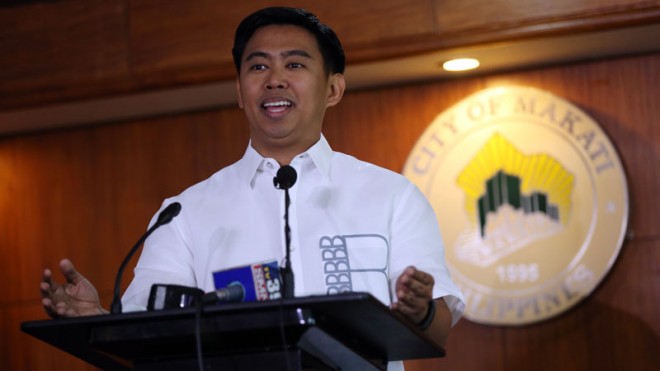
Suspended Makati City Mayor Erwin Jejomar “Junjun” Binay Jr. INQUIRER FILE PHOTO / NIÑO JESUS ORBETA
Suspended Makati Mayor Jejomar Erwin “Junjun” Binay Jr. can question his dismissal from service by invoking the condonation doctrine even if it was abandoned by the Supreme Court.
Legal experts agree that the abandonment of the doctrine will apply only to future cases since the Supreme Court in its ruling stated that abandonment is prospective.
“He can still invoke the doctrine if the decision of his dismissal is premised on the non-application of the doctrine and Junjun invoked it in that case,” said former Integrated Bar of the Philippines President Vicente Joyas.
Former University of the East Law Dean Amado Valdez on the other hand said the alleged illegal acts charged against Binay supposedly happened before the doctrine was struck down by the high court.
“(Being prospective only) means it will only apply on cases committed after the decision. So Binay can still invoke the doctrine,” Valdez said.
Binay was dismissed by the Ombudsman after he was found administratively guilty for his alleged involvement in the anomalous bidding for the construction of the Makati Science High School Building.
Binay has already filed a motion for reconsideration before the anti-graft body.
“The Ombudsman should make an inventory of cases in which it disregarded the doctrine and make a deeper look especially when motions for reconsideration are pending in the light of the recent SC decision,” Joyas said.
“They will be doing justice to the officials who were dismissed or suspended in disregard of the doctrine.”
On the other hand, Valdez believed that “the more important legal question is whether the Ombudsman can impose it on elective officials.”
“My position is that since it is penal in nature, it is only the courts can impose dismissal and perpetual disqualification as well,” he added.